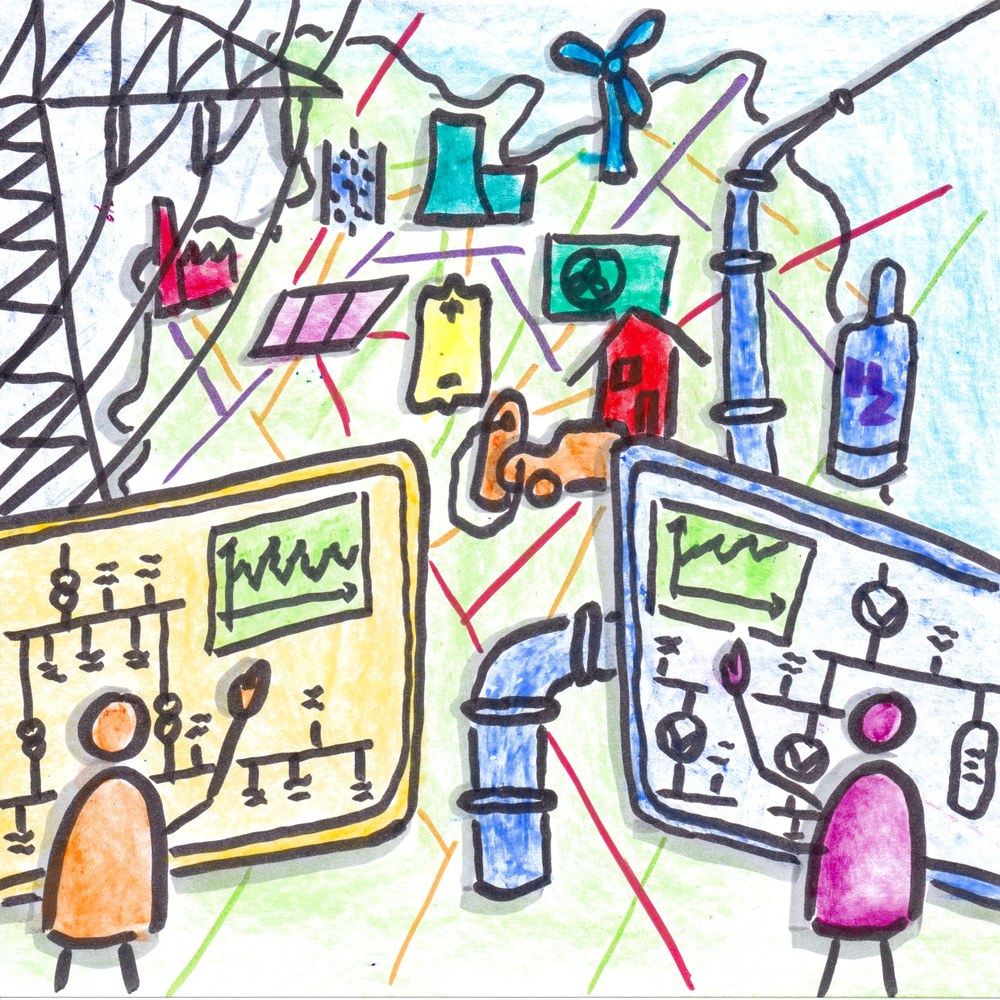Grid management: Electricity, gas, and heating grids
Integrated network management – ancillary services
To ensure that energy is not only available on the balance sheet, but also in the right place at the right time, electricity, gas, and heating grids must be analysed in anticipation of future challenges, adapted in their operational management and modernised and expanded in terms of infrastructure. The Institute of Networked Energy Systems therefore develops concepts and technical solutions to optimise design and operation of coupled and interacting electricity, gas, and heating grids. To this end, we carry out investigations with real energy flows in our electrotechnical and hydrogen-based laboratories. On the other hand, our research is based on modelling and simulations at a suitable level of detail, for which we use not only commercial simulation tools but also our own developments such as the open data models SciGRID_power and SciGRID_gas. Both are digital data models of the European transport infrastructure, which the institute makes available to the public for free.

Power grids
In the field of electrical power grids, our researchers are primarily concerned with the technical challenges posed by increasing dynamics and decentralisation as well as new controllable consumers such as electric cars. We are researching new grid technologies and architectures, analysing their regulation for smart grids and developing approaches for curative voltage maintenance in distribution grids. We are looking at the grid integration of storage power plants and grid operation management based on feed-in and consumption forecasts, decentralised system controls based on artificial intelligence and the design of the portfolio of system services for robust operation. We consider all grid levels from distribution to transmission grid level. Our DLR_NESTEC emulation laboratory for sector-coupled electricity grids offers optimal research conditions for this work. The laboratory allows us to investigate complex structures in low-voltage grids in real time, so that we can test possible solutions for their technical realisation directly at the institute.
Gas grids
In this field, we are focussing on the question of how the existing gas grid infrastructure can be operated with hydrogen from a technical and economic perspective. We are researching this with a high degree of practical relevance in numerous third-party funded projects in dialogue with representatives from industry and science. We develop models that realistically depict infrastructure of electrolysers, pipelines, compressors, purification plants and storage caverns and allow dynamic gas network simulation. We have developed time-series on supply and demand of hydrogen in-house that enable us to calculate dynamic operational management and required storage capacities
The integration of those electricity and gas grids that interact with each other via non-linear and time-variant processes such as electrolysers or reconversion power plants pose a particular challenge. This integration behaviour has a major influence on both operational management and plant design.
Heating grids
Compared to decentralised heating systems, heating networks enable efficient energy use, especially in densely populated regions. With this in mind, we determine the potential of heating grids for providing heat in neighbourhoods and properties and how existing heating networks can be refurbished to renewable energies. We also analyse which operational management leads to optimal results. In order to determine the current status, we rely on data-based models that achieve good and comprehensible results with minimal effort and readily available data. These models can be used to evaluate possible transformation strategies such as lowering the temperature level through measures on connected buildings or individual components of the heating network.
We are developing technologies and operational management concepts to ensure stable grid operation management as energy management becomes increasingly dynamic and decentralised.
